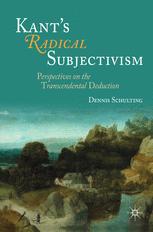

Most ebook files are in PDF format, so you can easily read them using various software such as Foxit Reader or directly on the Google Chrome browser.
Some ebook files are released by publishers in other formats such as .awz, .mobi, .epub, .fb2, etc. You may need to install specific software to read these formats on mobile/PC, such as Calibre.
Please read the tutorial at this link: https://ebookbell.com/faq
We offer FREE conversion to the popular formats you request; however, this may take some time. Therefore, right after payment, please email us, and we will try to provide the service as quickly as possible.
For some exceptional file formats or broken links (if any), please refrain from opening any disputes. Instead, email us first, and we will try to assist within a maximum of 6 hours.
EbookBell Team

4.7
86 reviewsIn this book, Dennis Schulting presents a staunch defence of Kant’s radical subjectivism about the possibility of knowledge. This defence is mounted by means of a comprehensive analysis of what is arguably the centrepiece of Kant’s Critique of Pure Reason, namely, the Transcendental Deduction of the Categories. Radical subjectivism about the possibility of knowledge is to be understood as the thesis that the possibility of knowledge of objects essentially and wholly depends on subjective functions of thought, or the capacity to judge by virtue of transcendental apperception, given sensory input. Subjectivism thus defined is not about merely the necessary conditions of knowledge, but nor is it claimed that it grounds the very existence of things.
Novel interpretations are provided of such central themes as the objective unity of apperception, the threefold synthesis, judgement, truth and objective validity, spontaneity in judgement, figurative synthesis and spatial unity, nonconceptual content, idealism and the thing in itself, and material synthesis. One chapter is dedicated to the interpretation of the Deduction by Kant’s most prominent successor, G.W.F. Hegel, and throughout Schulting critically engages with the work of contemporary readers of Kant such as Lucy Allais, Robert Hanna, John McDowell, Robert Pippin, and James Van Cleve.